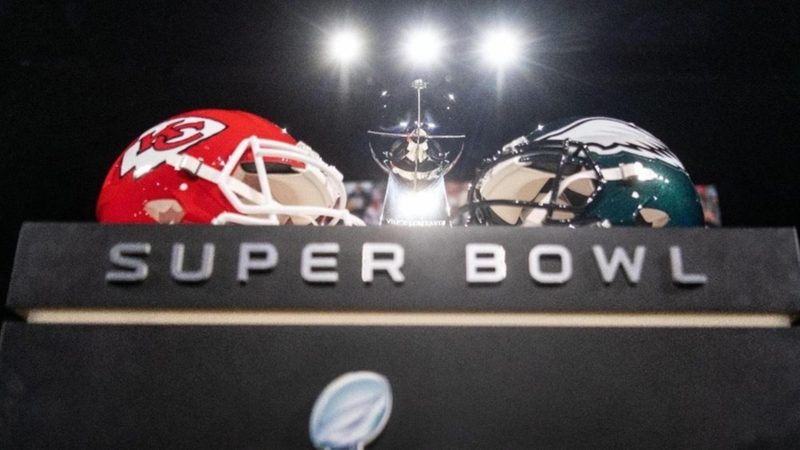
Super Bowl 58 made history not just for the thrilling game, but also for the unprecedented surge in sports betting activity, thanks to the popularity of online wagering.
Football fans across the nation eagerly placed their bets from the comfort of their smartphones and laptops, while others flocked to sportsbooks in cities like Las Vegas to get in on the action.
As the dust settled after the game, companies like GeoComply Solutions, which tracks online sports betting data, reported a monumental increase in activity.
In the moments leading up to kickoff, GeoComply's systems recorded a staggering spike in transactions, with nearly 15,000 per second − a record-breaking surge in online bets.
But how did this explosion in betting come about? And is it a sign of a worrying rise in North American betting?
The story behind the boom
Sports-related betting is on the rise in the US and Canada with an expected annual growth of around 9% per year until 2030, according to research.
This refers to betting on the outcome games rather than sports-related casino games you may find on websites like Stakehub.
People now have more ways to bet on games, whether it’s pre-match predictions or in-play betting as they gamble on the events that are about to unfold.
It’s trends like these that have been the driving force behind record amounts of betting in recent Super Bowls. The event already made headlines last year for generating the highest level of betting in history, but even this was put in the shade by the 2024 event which, aptly, took place in Las Vegas, the world gambling capital.
The American Gaming Association released estimates of over a quarter of American adults (67.8 million) are expected to bet on Super Bowl LVIII between Kansas City Chiefs and the San Francisco 69ers, which is a 35% increase.
As the event kicked off, however, it quickly became clear that even these estimates were about to be surpassed.
A record event
Not even the sports bettors themselves were prepared for the avalanche of bets.
FanDuel, one of the major players in the sports betting arena, disclosed that it had processed a jaw-dropping $14 million in bets, with a total handle of $307 million. These figures shattered previous Super Bowl records for the company, indicating a whopping 40% increase from the previous year's game.
While some sportsbooks didn't immediately release their figures, BetMGM did reveal some insights. According to their data, a significant majority of bets were placed on the Kansas City Chiefs, with 74% of the total handle favoring them to win, along with 63% of the bets placed.
However, it wasn't all smooth sailing for sportsbooks. BetMGM's senior trader noted that many bettors backed the Chiefs, resulting in significant losses for the sportsbook. Nevertheless, the total amount of money exchanged during Super Bowl 58 is at an all-time high, thanks to the myriad of betting options available, ranging from traditional game outcomes to player props and casual bets among friends and family.
According to the Nevada Gaming Control Board, sportsbooks in Las Vegas collectively took in an incredible $185.6 million in bets on the big game. This figure destroyed the previous record of $179.8 million set during the 2022 Super Bowl.
More to come
Looking ahead, the American Gaming Association anticipates continued growth in sports betting, with the Super Bowl only getting more popular.
Sportsbooks like BetMGM are already gearing up for the next big event. With eyes set on Super Bowl 59 in New Orleans, they've pegged the San Francisco 49ers as early favorites to take home the title at enticing 5-to-1 odds.
With online betting options growing, too, it’s easier than ever for US consumers to place a bet. Yet, this has come with warnings from many sports betting experts who fear that the convenience of placing a bet will increase the risk of problem gambling among fans.
One solution suggested has been to increase the amount of advertising around safe gambling awareness before, during, and after the event, but this may not have the desired effect.
Either way, as the eyes of the world look toward New Orleans next year, there’s only one certainty: that a game of football will take place and millions of people will bet on it.
Photo credit: Alamy


















